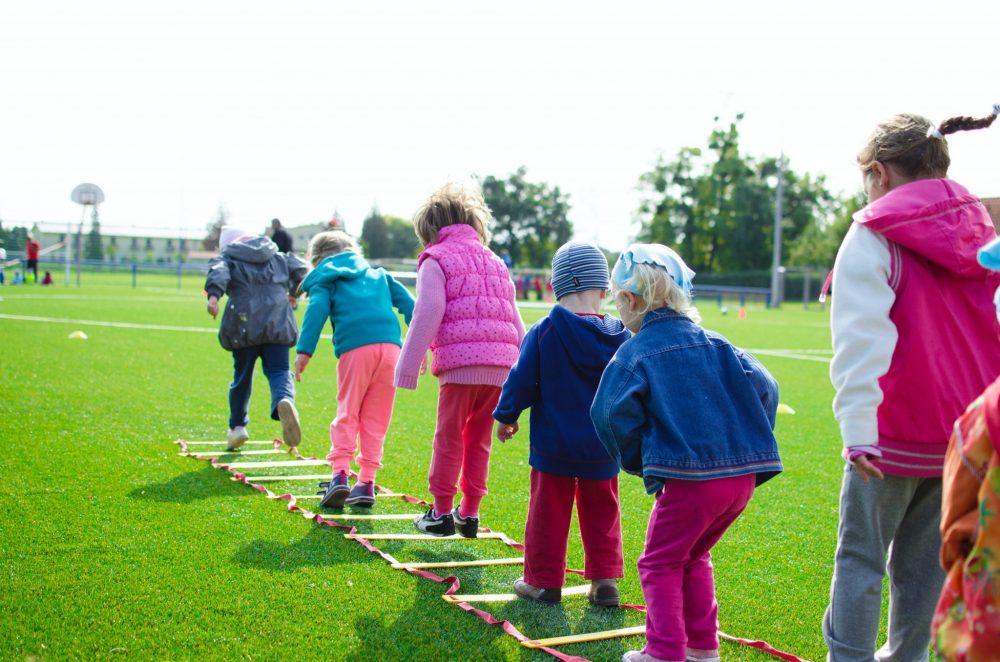It is one of the biggest issues we can face as parents. When our children have an interest in something and they really want to pursue it, they can invest themselves wholeheartedly in the process, but there may come a time when, long after we've invested in all of the relevant paraphernalia, they're actually no good at it.
And this can prove to be a difficult thing for any parent and child to deal with. When our children are so interested in something, but they find themselves either intimidated because others are doing better than them or they get teased at school, it's something anybody can feel overwhelmed by.
But this is where we've got to be proactive and pragmatic as parents. What have we got to do to ensure that, if our children are good at something, we either pursue it or deal with the lack of skill appropriately?
How Do We Get Our Children Skilled in Something They May Not Be Good At?
Ensuring They Are Focused Properly
This is the most important thing. Because if your children have an interest in baseball and they've asked you to buy baseball hitting tees, baseball bats, helmets, and everything involved with it, we've got to make sure that they've actually dedicated themselves to practicing properly.
Because our children can be so quick to give up but they've barely attempted the practice at all, this is where we have to ensure that they've given themselves a chance to be dedicated. Children can easily feel intimidated because there is somebody better at it than them.
But we have to do some essential practices to make sure that they've done enough themselves, such as:
Dedicating enough: This would mean actually ensuring that your children have been using their spare time appropriately. Children can give up quickly when they're not good at something. And this is further compounded when there are friends who end up having that natural aptitude.
Ensuring you support them: As parents, we have got to give them the appropriate support to make sure that they are approaching the subject in the right way. When we're talking about skills, we have to remember that from a very practical perspective that our children need to practice motor skills. When it comes to throwing a baseball or swinging a bat, it's about form over anything else. The same applies to boxing or even doing a press-up; once the form is in place, this is going to make sure that they are doing things in the right way.
Make sure our children don't get ahead of themselves: When our children want to practice karate, they automatically want to start hitting and kicking. The whole premise of a karate lesson is to instill the skills in people so that they don't have to use them. The whole process of going up the belts involves harnessing that level of skill, as well as that control.
How Can We Instill Confidence, Even When Our Children Don’t Have It?
This is so important because when our children don't feel so good at something, this immediately hinders their confidence. Therefore, we have to remember that skill is the most important aspect of learning a sport or anything.
When our children don't feel confident in themselves, naturally they are going to feel like they won't be good at the sport or pastime of choice. So we've got to remember that our children need to have that belief in themselves so they can apply themselves to the sport and the level of skill-based on their natural aptitude.
Because if our children don't have confidence in themselves, they are going to gradually feel they won't be able to achieve anything. That confidence and innate self-belief in oneself are so important as we grow up, so we have to instill this in our children at such a young age, especially when it comes to learning skills.
Because as our children get older, their confidence will get better. Of course, it's not always so easy when our children are surrounded by people that are threatening to undermine their confidence. If you want your children to improve their sense of self, you have to focus on developing confidence at a young age. And there are many different ways to do this:
- Teaching the importance of body language.
- Giving them things to think about in terms of their self-development.
- Praising every aspect of their journey.
Confidence is such a difficult thing to instill in a child when they are so young, but this is vital to giving them that sense of belief for themselves when it comes to acquiring skills.
But if we focus on giving our children a foundation of belief in themselves, and also help them to acquire the relevant skills related to problem-solving, this can help everybody.
The fact is that we don't necessarily equip our children with the abilities to solve problems, however, when it comes to unlocking the keys to their confidence, problem-solving can be so important.
So if your children are looking to develop a skill that they don't necessarily feel they have in them, that tenacity and workmanship that's so important to overcoming a lack of belief in themselves are vital. Because when our children are looking at learning something new, they're going to believe that they just don't have what it takes.
The fact is that we all don't have what it takes when we start. And it's necessary to understand that learning anything new requires time, effort, and application.
What if Our Children Do Not Have What It Takes?
The fact is that if we've given enough time and attention to our children to accomplish a problem, either when it comes to learning a new skill or a sport, there may come a point when we may think that our children don't have what it takes.
Sometimes, our children will come to us and say they don't want to do this anymore because they either feel that they don't have what it takes or they have become bored with trying too hard. But rather than forcing your children to actually be better and apply themselves more, we have to trust our children's judgment.
After all, as long as they try the best they can, that is good enough.
It's not an easy thing to come to terms with because you may think you've done wrong by your children, especially when it comes to learning a skill or a practice. However, you've got to consider this in the grand scheme of things. If their everyday health is fine and they display natural aptitude in other areas, you have to go and support them.
Because, after all, there are things in life that we're not a million percent brilliant at.









Leave a Reply